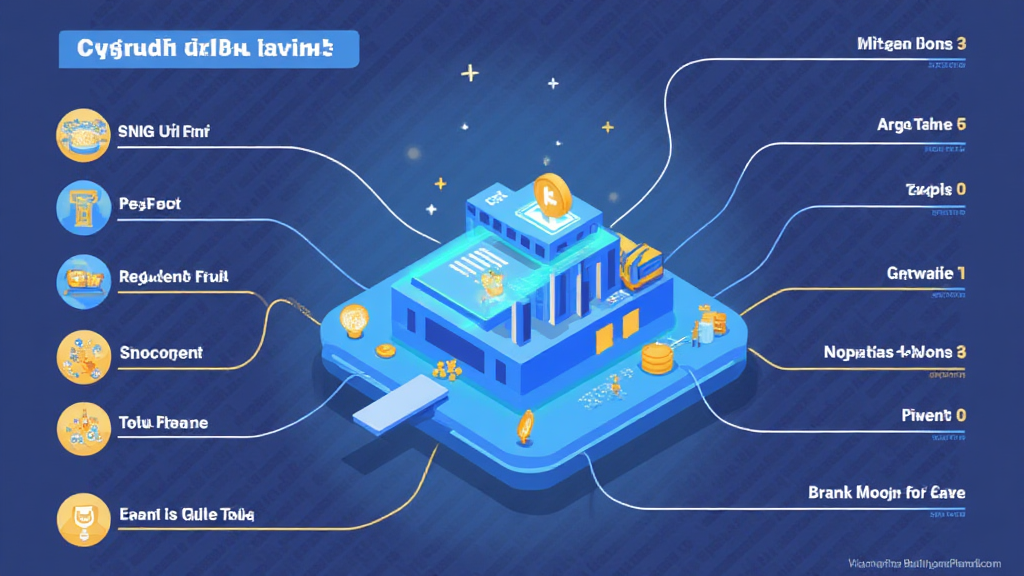Understanding HIBT Vietnam Token Classification in the Regulatory Context
In 2025, the crypto ecosystem is poised for unprecedented growth, with projections indicating a market valuation surpassing $7 trillion. However, as the assets within this market evolve, so too do the regulatory frameworks surrounding them. With $4.1 billion lost to DeFi hacks in 2024, understanding the classification of tokens, particularly within the Vietnamese context, is essential for users and investors alike.
A Closer Look at HIBT Vietnam Token Classification
The HIBT Vietnam Token aims to establish a clear framework that categorizes tokens based on their utility, security, and compliance with local laws.
- Utility Tokens: These grant users access to specific platforms or services, akin to how store credit works. Examples include tokens used for transaction processing fees or service subscriptions.
- Security Tokens: Representing ownership of assets or equity, these are subject to more stringent regulations and are typically used by investors seeking to secure returns.
- Governance Tokens: Users can influence the direction of the blockchain project with these, exercising voting power on decisions such as protocol upgrades.
By establishing a classification system, Vietnam aligns with international standards while addressing local challenges. The implementation is expected to enhance trust and transparency within the crypto market.

Vietnam’s Regulatory Landscape: What You Need to Know
The Vietnam regulatory context is evolving, with heightened focus on consumer protection and anti-money laundering (AML) protocols. In 2025, as Vietnamese users of crypto assets increase by over 35%, regulatory clarity becomes imperative for fostering a secure trading environment.
Let’s break it down:
- Compliance Requirements: Regulatory bodies in Vietnam are working on establishing compliance frameworks that mirror those in developed markets. Companies dealing with tokens must be aware of these requirements.
- AML and KYC Policies: The Vietnam government emphasizes know-your-customer (KYC) procedures to combat fraud and theft in crypto transactions.
- Collaboration with Global Bodies: Vietnamese regulators are partnering with global standard-setting organizations to adapt best practices in blockchain technology and security.
Consensus Mechanisms: The Backbone of Security
A significant element in the token classification is understanding consensus mechanisms. This pivotal technology ensures all transactions are verified and agreed upon across the network. Different mechanisms serve various purposes, impacting both security and scalability.
- Proof of Work: Known for its strong security but often criticized for energy consumption.
- Proof of Stake: A more energy-efficient system that allows participants to validate transactions based on the number of coins they hold.
- Delegated Proof of Stake: This allows some users to delegate their stakes to others, creating a system that balances decentralized governance and efficiency.
Understanding these mechanisms provides insights into how different tokens operate and their security reliability.
Market Data and Trends
The rise of crypto trading in Vietnam is not just a conjecture. The following table shows the traction that various segments of the market are gaining:
| Year | Crypto Users (millions) | Market Growth % |
|---|---|---|
| 2023 | 3.1 | 15% |
| 2024 | 4.2 | 35% |
| 2025 | 5.6 | 60% |
As depicted, the growth is exponential. This influx indicates a ripe opportunity for educational initiatives and regulatory measures, ensuring safe engagement in the crypto space.
The Path Forward: Navigating Regulatory Compliance
Here’s the catch: successfully navigating the regulatory landscape is not just about compliance but also about building trust. Here are practical tools and strategies:
- Regular Audits: Engaging in frequent audits of your smart contracts can mitigate risks efficiently. Tools like MythX offer automated solutions for security analysis.
- Education and Workshops: Organizing workshops that inform potential users of regulatory updates and security practices can position your brand as a trusted authority.
- Legal Consultations: Working closely with legal advisors helps clarify obligations and minimizes the risk of non-compliance.
Conclusion: Stepping into the Future
The classification of HIBT tokens within Vietnam’s regulatory context is essential for fostering growth and ensuring safe practices in the ever-expanding digital asset market. Adapting to this landscape requires not only an understanding of regulations but also an ongoing commitment to education and compliance.
As we move further into 2025, remember that being proactive about regulations and security can significantly impact your standing in the crypto industry. For further insights, visit hibt.com, and empower your journey in the crypto world.
Dr. Nguyễn Văn Bảo, a leading authority on blockchain technology, has published over 25 research papers and led audits for prominent crypto projects.





